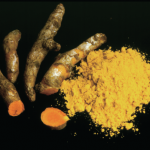Supplements
How do I know which over-the-counter supplements are safe?
In April 2022, the U.S. Food & Drug Administration (FDA) released a report indicating the presence of diclofenac and dexamethasone in an over-the-counter supplement being promoted to help with joint pain.9 Although the label listed familiar supplement names, such as glucosamine, chondroitin, curcumin, omega-3 and vitamin C, it left off the prescription drugs. Artri King had been on the market in the U.S. for several months prior to this warning. How did this happen?
Although the FDA has an extensive process for regulating pharmaceuticals, it regulates dietary supplements as if they are food. What’s more, manufacturers are not required to disclose when they release a new product on the market. When you see the list of medication fraud warnings on the FDA website, you realize that this is not an uncommon problem. This is where third-party verification comes into the picture.
Third-party verification services are provided by independent companies that perform audits of supplement manufacturers to ensure good manufacturing processes, verify products listed on the label are present at declared potency, and assess for the presence of contaminants or other banned substances. The most well-known of these companies include USP (formerly U.S. Pharmacopeia) and the National Sanitation Foundation (NSF), which receive products directly from the manufacturer for testing for a fee and will retest each product at least once a year. If a supplement has passed inspection, it should have either the USP, NSF or another third-party logo on the bottle.
To be clear, third-party verification does not indicate the effectiveness of the supplement for what it is being advertised for, just that the label adequately describes the contents of the bottle.
U.S. consumers spent $11.2 billion on herbal supplements in 2020.10 The pandemic was certainly a driver for much of the surge during this year, with elderberry—touted as a support for immune health—being the top seller, accounting for $275 million of this total.10
The fact of the matter is, even if we’re not actively recommending them to our patients, over half of Americans report taking at least one over-the-counter supplement. With the incomplete safety net provided by the FDA, providers and consumers alike need to be aware of potential pitfalls in the system. Encouraging patients to read the label and confirm they are taking what is advertised is a huge first step in patient safety.


